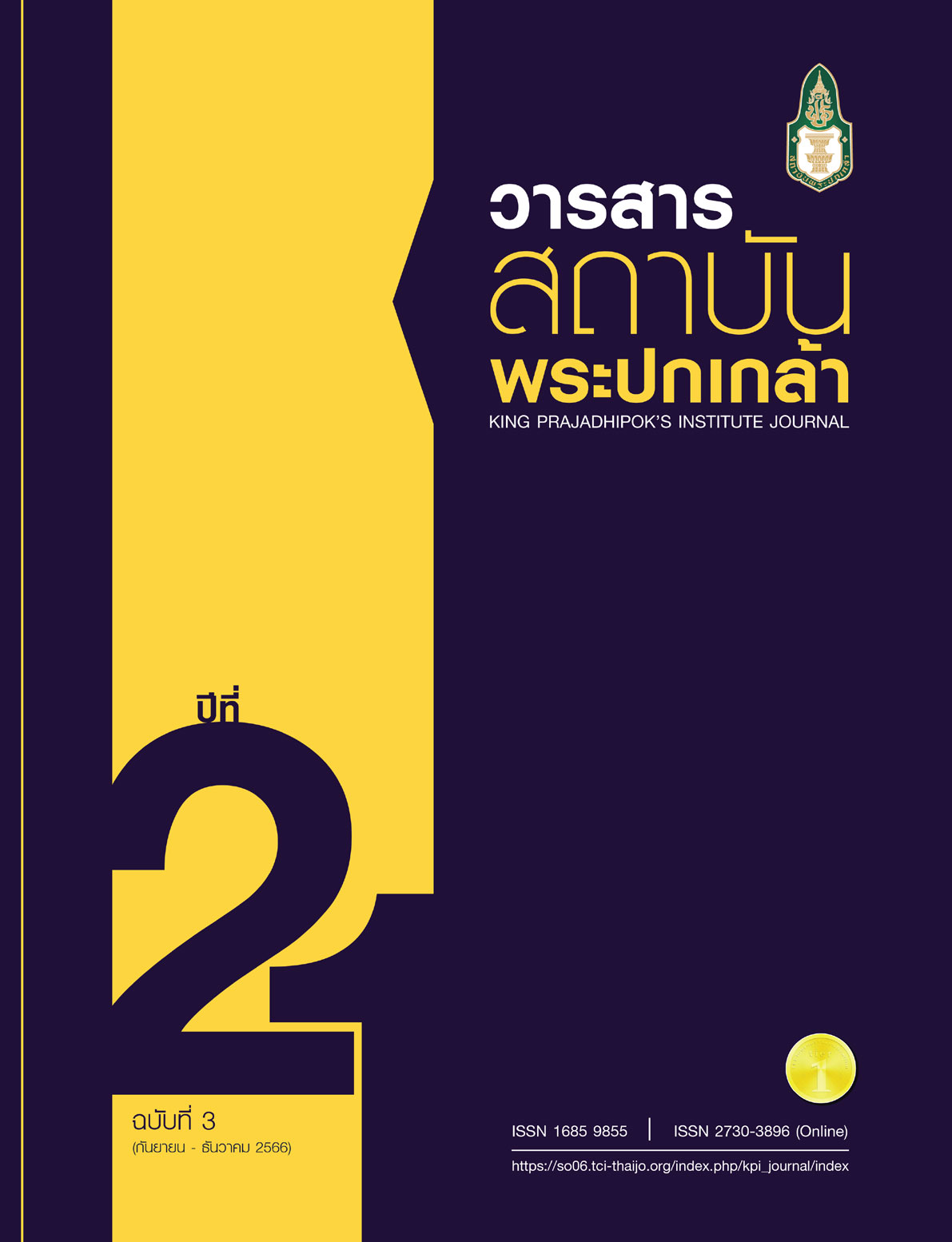Conceptions of Political Representation and its Application in Thai Politics
Main Article Content
Abstract
Political representation is one of the most essential concepts in the contemporary political era, especially in democratic regimes. However, the concept faces the same problem as other political concepts (such as justice, rights, equality, etc.), in that one idea has several conceptions. Whenever the idea was transliterated from the Western to a political context in Thailand, the concept was twisted and stretched by incorporating the original meanings with new connotations.
This research presents the meanings and conceptions of political representation from the Western context and its application in Thai politics. It also suggests a plausible concept. The analysis assumes that the idea of political representation affects and shapes Thai politics, but the Thai political context reduces the idea's impact and its applications. The constitutional drafting committee is more concerned with the problems of election fraud than with how the representatives effectively represent the needs and the interests of the voters.
The researchers use documentary research to portray the various conceptions of political representation and its adaptation to Thai political contexts. This research also interviews some members of the drafting committee of the current constitution as critical informants to view the adaptation of the very ideas and their limitations.
The idea of political representation was categorized into three main conceptions: delegation, trustee and advocated. By comparing these three conceptions, the researchers find that the advocacy conception is the most suitable for capturing the complexity of political phenomena, and it overcomes the limitation of the other two contesting concepts. The advocacy conception presents the process that connects the represented (voters, citizens in the constituency), and representatives with the election and other political processes (recall, press) to create the dialectic relationship between the represented and the representatives. From the perspective of applying the concept, the interview results confirm the assumption that the drafting committee is primarily concerned with the problem of fraud in elections.
Article Details

This work is licensed under a Creative Commons Attribution-NonCommercial-NoDerivatives 4.0 International License.
@ 2020 King Prajadhipok's Institute The Government Complex Commemorating All Right Reserved.
References
ภาษาไทย
กระทรวงธรรมการ, กรมตำรา. (2470). ปทานุกรม พ.ศ. 2470. กรุงเทพฯ: โรงพิมพ์กรมตำรา กระทรวงธรรมการ.
ราชบัณฑิตยสถาน. (2556). พจนานุกรมฉบับราชบัณฑิตยสถาน พ.ศ. 2554. กรุงเทพฯ: ราชบัณฑิตยสถาน.
ภาษาอังกฤษ
Burke, E. (1999). Speech To the Electors of Bristol. In F. Canavan & E. J. Payne (Eds.), Select Works of Edmund Burke: A New Imprint of the Payne Edition (pp. 3-14). Indianapolis: Liberty Fund.
Diamond, L. J., & Morlino, L. (2004). The Quality of Democracy: An Overview. Journal of Democracy, 15(4), 20–31. doi.org/10.1353/jod.2004.0060
Hobbes, T. (1998). Leviathan. Oxford; New York: Oxford University Press.
Montesquieu, C. de S. (1989). Montesquieu: The Spirit of the Laws. Cambridge; New York: Cambridge University Press.
Pennock, J. R. (1968). Political Representation: An Overview. In J. R. Pennock & J. W. Chapman (Eds.), Representation (pp. 3-27). New York: Atherton Press.
Pitkin, H. F. (1967). The Concept of Representation. California: University of California Press.
Przeworski, A. (2018). Why Bother with Elections? Cambridge, UK; Medford, MA, USA: Polity Press.
Ravitch, S. M., & Carl, N. M. (2016). Qualitative Research: Bridging the Conceptual, Theoretical, and Methodological. Los Angeles: SAGE.
Rousseau, J.-J. (1999). The Social Contract. In Trans Discourse on Political Economy; and the Social Contract [Discours sur l'oeconomie polititique] (C. Betts, Translate) (pp. 43-168) (C. Betts, Translate). Oxford; New York: Oxford University Press.
Urbinati, N. (2011). Representative Democracy and Its Critics. In S. Alonso, J. Keane, W. Merkel, & M. Fotou (Eds.), The Future of Representative Democracy (pp. 23-49). Cambridge; New York: Cambridge University Press.
Urbinati, N., & Warren, M. E. (2008). The Concept of Representation in Contemporary Democratic Theory. Annual Review of Political Science, 11(1), 387–412. doi.org/10.1146/annurev.polisci.11.053006.190533


